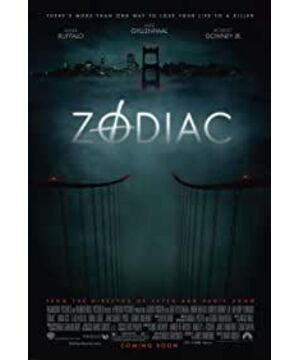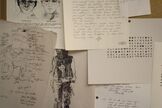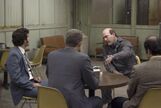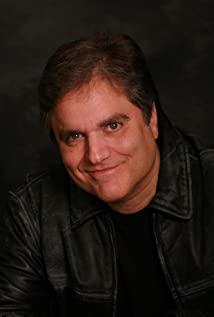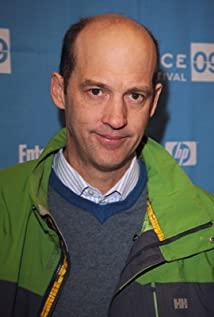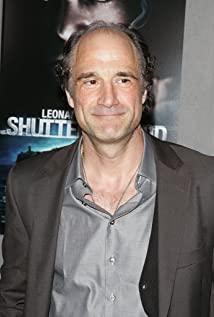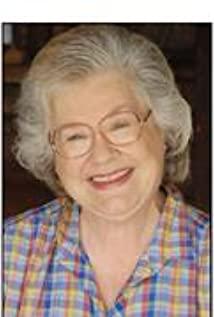aspiring young women
for this film. Mr. Zodiac wants to know who the public and the media fooled by him will eventually throw this money-making gimmick to show off. As a bystander, I really want to know who will show the most weird killer in American history and everything that happened.
"Zodiac" directed by Alexander Bulkley in 2005 is the most recent one since the film about Zodiac in 1971. When watching the 2005 version of "Zodiac", I didn't know that David Fincher would put Zodiac's story on the big screen again. The last subtitle that appeared at the end of the 2005 version of the film, "I really want to know who will play me in the film.", I remember deeply. This is a sentence in one of Zodiac’s letters to the newspaper. Such a sentence can be said to have aroused the appetite of all those who are interested in Zodiac. Such a sentence once again casts the shadow of Zodiac’s murderous nightmare. People wake up, and people start to pay attention to this murderer again.
The curious psychology of the mass media was seen by Zodiac, so he said such a shocking sentence, so the manga writer Robert Graysmith of the "San Francisco Annual Report" used his life's energy to write "The Twelve House of Secrets" "The Mystery of the Identity of the American Devil" is a once-selling documentary literary work, so there is "Zodiac" directed by David Fincher and adapted from this book.
The magic of Zodiac swept through almost the entire American society in the 1960s and 1970s. Whether it was a police detective investigating the case, a newspaper reporter who reported the matter, or even ordinary people, people seemed to be swayed by a kind of marijuana called Zodiac. addiction. Until now, the Southern California Police Department's homicide detection team still has a dedicated person in charge of investigating the case, and has not found who is the real Zodiac.
Although Zodiac is a reason for attracting audiences to enter the movie theater, the real reason why the film is so eye-catching lies in the director David Fincher who has directed "Fight Club" and "The Seven Deadly Sins". "Fight Club" allowed people in the 90s to see a new alternative exposition of violence, and "The Seven Deadly Sins" became a classic in crime thrillers. David Fincher puts a halo on the film, a continuation of a typical brand effect. People are eager to see the gorgeous and dazzling violent scenes in "Beat" again, and people are eager to see the direct and naked crime scenes in "Seven" again. People hope that in the latest "Zodiac", a kind of A more cruel and naked way to restore Zodiac's crimes and punishments. Because the elements of violence, blood, and crime have always been David's best, and Zodiac's story should be the best material to show these elements.
People with these desires, including me, of course, are obviously disappointed in "Zodiac", because there are no more gorgeous violent scenes in the film, and no more direct representations of the murder scene, full of nakedness. This film is a picture of the life in Southern California in the 1960s and 1970s, the people and their lives affected by Zodiac. Newspapers and police stations are full of the chaotic and busy scenes of telephone ringing, a frustrated detective, a drunkard editor and a stubborn cartoonist, as well as a large group of people tortured by Zodiac.
When I say "disappointed" with "Zodiac", I don't mean that there is a problem with the quality of the film. David began to tell the story from a new angle, and the difference is more visually presented. The film appears calm and objective enough. This new method of storytelling is undoubtedly very successful. A story that is calm on the surface but darkly choppy, a story triggered by Zodiac, but pays more attention to those who have changed because of Zodiac, not just from Zodiac set off, he was just an introduction, guiding people into those years and into the hearts of those who were captured by this nightmare. The rhythm of the story is still tight. Although there is no routine in the usual crime thriller films, it still firmly grasps the hearts of the audience through Robert's step by step investigation. Everyone wants to know who is the real Zodiac. , Although we all know that Zodiac is still at large so far. Such a suspense runs through the film from beginning to end. The most critical point is that we have once again entered the nightmare that has passed, and this nightmare is not fabricated, it has actually happened, Zodiac Perhaps still alive, he lives around us.
We saw Robert Greysmith, the manga writer of the San Francisco Annual Report played by Jack Gyllenhaal, who was privately referred to as a "nerd" by his colleagues. He does not drink or smoke and does not cause trouble. In the eyes of a colleague Boy Scout, a single father. However, he became the key person to understand Zodiac's mystery. The film gave this paranoid young man a lot of time. How he was fascinated by Zodiac, how he insisted on finding who is the real murderer, and how for all of this And once again lost his second wife. The role of Jack Gyllenhaal can be said to be perfect. Zhang Chi is in place and it is no exaggeration. You can no longer find the figure of the rebellious little soldier in "Broken Head", nor can you find the one in "Brokeback Mountain". Ruthless man. In this film, Jack Gyllenhaal is a good man, a little man who insists on his dreams. Although he is so paranoid and even not understood by others, he is just like this. He led the audience into and saw Zodiac most The unknown side.
The alcoholic editor Paul played by Robert Downey Jr., an addict is also a workaholic. He looks down upon those who don't recognize him. He is a lofty person, but in the end he did not complete the task he gave himself. It can be said that the role of Paul by Robert Downey Jr. is like a portrayal of his own real life, rebellious and unworldly, a typical Hollywood problem man.
The film also shows from another aspect that the procedural links of the US judicial department in the 1960s and 1970s were so complicated and cumbersome that it became the key reason why Zodiac could not be arrested in time. In the 1960s and 1970s, the American judicial process, which speaks with evidence, relied only on notes and fingerprints, and some stale systems caused delays in the case. Presumably, every viewer who has watched this film will feel disappointed and frustrated at the loss of every arrest opportunity.
If Zodiac is still alive, if he is not the biggest suspect Lei who died of a heart attack in the end, if he sees this film, I think he will be very satisfied. This film reproduces that period of history so calmly, objectively and truthfully. In the form of a documentary news documentary, it perfectly and flawlessly reproduces the spiritual torment he brought to people. I think he might be compared to murder. I prefer to see that people’s lives are affected because of him, and their hearts are completely captive.
Didn't he say such a sentence?
"Humans are the most dangerous animals. I will go to heaven one day. I kill people now, just want them to be my slaves after death."
Mr. Zodiac, through David's perfect reproduction, the audience have seen your evil "Success", are you satisfied at the moment?
(TOM authorized manuscript, reprinting is strictly prohibited)
View more about Zodiac reviews


